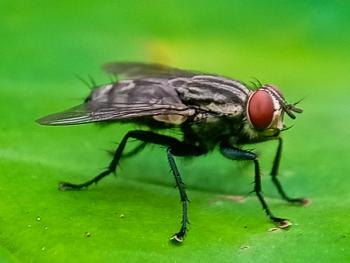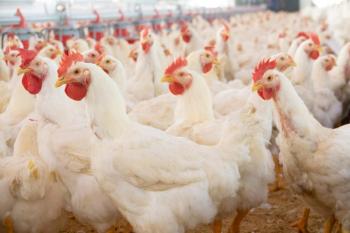
Time to get 'ruff': Reducing infectious disease risk at dog-gathering events
Dog shows, dog parks and other dog get-togethers are a prime place for pathogens to have a heyday. One group of veterinary researchers has created resources to help you and your clients keep these events safe.
Shutterstock.com
Dr. Jason Stull
We live in a world of existing and emerging infectious disease threats-it seems like we hear about one on the news almost daily (Zika, anyone?). But as veterinary team members we know these risks are not unique to people. Group dog events and gatherings carry a similar increased risk of infectious diseases. And conversations about prevention take place at veterinary clinics, boarding kennels, doggie daycare centers and dog shows on a daily basis-at least they should.
Canine “get-togethers” are popular and fun for dogs and their people. Examples include:
- Dog shows (e.g. conformation, obedience)
- Canine sporting and performance events (e.g. agility, field trials, herding, hunt test, dock jumping, flyball, earthdog test, tracking, sled racing)
- Dog parks
- Training and socialization classes
- Doggie daycare
- Boarding facilities
- Community events involving many dogs that will likely have close contact (e.g. festivals, parades).
Dr. Michelle EvansonAlthough fun for people and dogs alike, there is an increased risk of infectious diseases when dogs are brought together in a shared (and often high-dog-density) environment. Individual dogs can be exposed to infectious pathogens and get sick, and in some cases infections may spread from dog to dog, leading to outbreaks and further spread of illness in the dog community. For example, canine group events have been implicated in spreading canine influenza virus during the past few years. Results can be devastating for dog health, optimum performance and everyone's enjoyment.
Coming together on dog get-togethers
Challenges for veterinarians in this area are significant. It's hard to know what to say to an enthusiastic dog show competitor or happy dog-park-attending pet owner when they ask us about these activities. It also takes time to include these discussions in our day-to-day pet health visits and requires us to stay current on disease risks and knowledge of the many different types of events (so what is an earthdog test anyway?).
Well, don't throw in the towel-or squeaky toy. Through funding provided by the AKC Canine Health Foundation and the Orthopedic Foundation for Animals, our research group has
Resources just a click away
We found that there is a strong need for awareness and education regarding canine infectious diseases-especially surrounding ectoparasite and endoparasite control-as well as for education to promote culture change related to disease prevention at all event and activity levels. In response, our group has developed the following tools and resources, which are now freely available
- Canine infectious disease risk calculator. Enthusiasts from event organizers to accomplished dog show competitors to occasional dog park visitors can take this 10-minute online quiz to find out how they score in keeping their dogs or events safe.
- Layperson's white paper. This is a simple summary of infectious disease transmission in group settings and an overview of the guidelines; checklists help event organizers and participants determine where they need to focus their efforts.
- FAQ/FACT documents. These quick reference sheets discuss a sample of infectious pathogens and general disease concepts geared at the dog owner level.
Open-access article in JAVMA . This peer-reviewed article provides an in-depth discussion of the infectious disease risks, supporting evidence and resulting recommendations developed by the research group.
Bottom line
Veterinarians and clinic staff now have resources to help answer questions about preventive care for these dogs and to share with our clients. And unlike infectious diseases, these resources are meant to be shared.
So read them and pass along, because we all want the same thing: Happy, healthy dogs and pet owners (of all types and stripes) who enjoy their time watching dogs being dogs-whether this is at an optimum canine conformation and athletic performance or just romping around having a blast at the local dog park.
Dr. Jason Stull is a veterinary epidemiologist at The Ohio State University College of Veterinary Medicine. Dr. Michelle Evason is a veterinary internist with many interests, including infectious disease and just about anything that improves pet health and aids owner compliance. She is a private consultant and owner of Michelle Evason Veterinary Internal Medicine and Nutrition Consulting.
Newsletter
From exam room tips to practice management insights, get trusted veterinary news delivered straight to your inbox—subscribe to dvm360.






